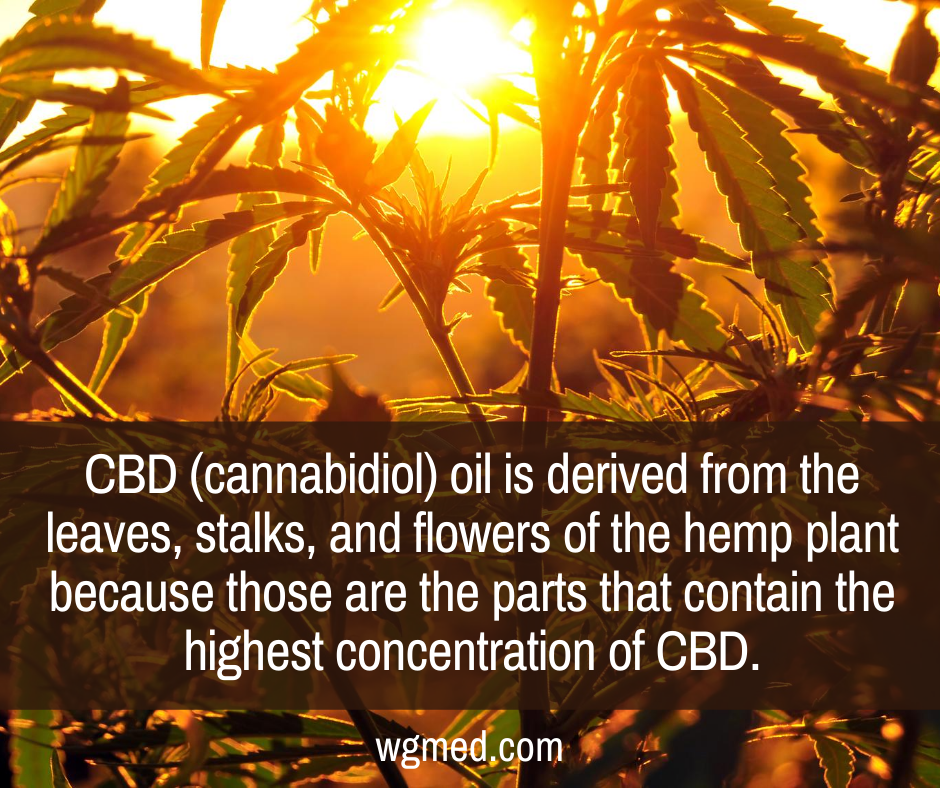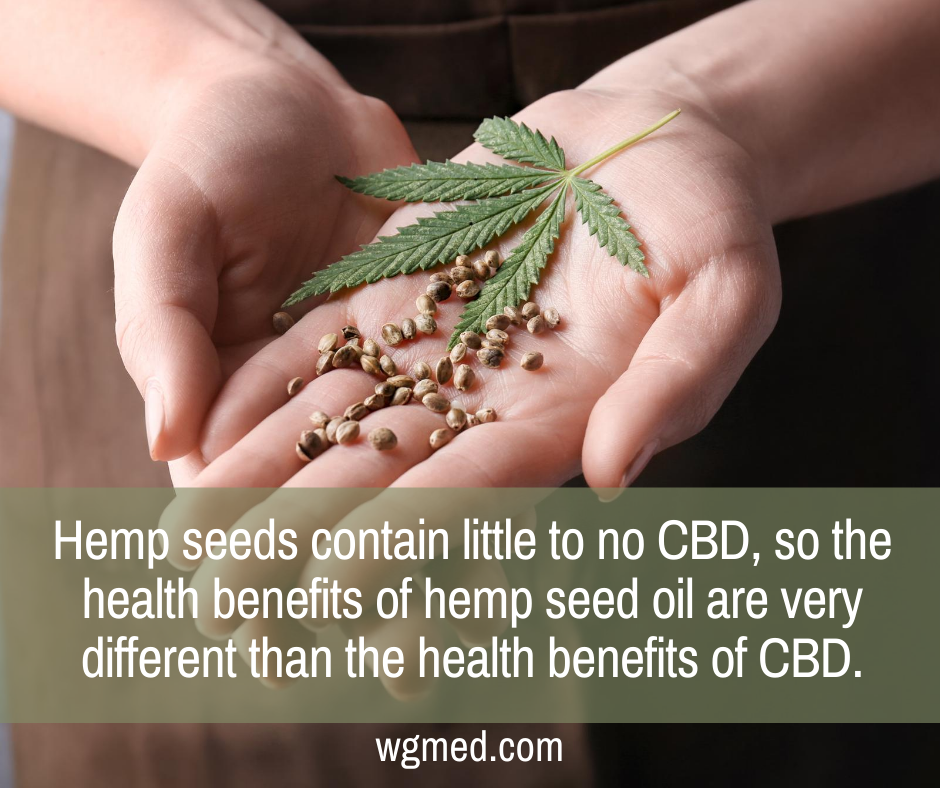CBD vs Hemp Oil: Is There a Difference?

There is a lot of confusion about CBD vs hemp oil, and it makes sense why. There are plenty of different terms floating around out there, and many people use them interchangeably.
For example, there’s marijuana, CBD, hemp oil, hemp seed oil, full-spectrum CBD, broad spectrum CBD, CBD isolate, and nano-CBD. What the heck is the difference between all of these things?
We have some simple answers for you. Let’s dig in and get to the bottom of it.
First Things First: Hemp vs Marijuana
Before we can understand CBD vs hemp oil, we first need to take a look at hemp vs marijuana because it is all too often confused.
What is Hemp?
Hemp refers to the varieties of Cannabis that contain 0.3% or less of THC (tetrahydrocannabinol), which can cause psychoactive effects.
Hemp is harvested for industrial purposes because it has many diverse uses. For example, it can be used to create all of the following:
- Fabrics
- Diapers
- Rope
- Carpets
- Caulk
- Cardboard
- Oil Paint
- Printing Ink
- Fuel
- Insulation
- Soaps, Shampoos & Lotions
- Foods (Hemp Seed Hearts, Hemp Seed Oil, Hemp Protein Powder)
- Medicinal Products (CBD Tinctures, CBD Topicals)

What is Marijuana?
Marijuana refers to the varieties of Cannabis that contain more than 0.3% THC. That means it can make a person high by creating a psychotropic or euphoric effect.
Hemp vs Marijuana
Hemp and marijuana can both produce large amounts of CBD.
Since they contain very different levels of THC, they are regulated differently. Hemp and hemp-derived products became federally legal in the U.S. under the Agricultural Improvement Act of 2018.
Marijuana is still considered a controlled substance, and is therefore federally illegal under the Federal Marijuana Law.
It doesn’t matter if CBD is derived from the hemp plant or the marijuana plant because at the molecular level, it is CBD no matter where it comes from. Be that as it may, the only CBD that is legal in the U.S. is the CBD that derives from the hemp plant since the marijuana plant is considered a controlled substance.
CBD vs Hemp Oil: Understanding the Differences
Now, let’s look at CBD vs hemp oil, as well as all of the other associated names so that we can truly understand what we are talking about.
Hemp Oil & CBD
CBD (cannabidiol) oil is derived from the leaves, stalks, and flowers of the hemp plant because those are the parts that contain the highest concentration of CBD.
Hemp oil is essentially just another name for CBD, however there are different types of CBD oils:
- Full-Spectrum CBD Oil – Contains all of the compounds found in the cannabis plant, including low levels of THC
- Broad-Spectrum CBD Oil – Contains several compounds, but no THC (or only trace amounts)
- CBD-Isolate – Contains only CBD
- Nano-CBD – Contains CBD that is coated in small particles that help to stabilize the CBD, move it through our blood more effectively, and slowly release it into our tissues over time
Is Full-Spectrum CBD Better?
Let’s look a little more closely at the term “full-spectrum CBD oil” for a moment.
There’s a theory called the Entourage Effect, which states that the synergistic effects of multiple cannabinoids (CBD, THC, CBN, etc.) work together to create stronger medicinal benefits.
There is also a link between the various terpenes (scent molecules) that are present in different ratios in different strains of cannabis, which may have an impact on the strains’ effects.
The problem is that full- and broad-spectrum CBD products contain trace amounts of THC, and that means that it has the potential to cause failed drug tests. There is even a ban on all CBD products in the armed forces because of this issue.
The companies that sell these products claim that the THC and terpenes in their CBD products are more effective because of the Entourage Effect, but there is much debate as to whether this theory is valid or not and it has not been studied in depth.
Benefits of CBD
When you type in “benefits of CBD” into PubMed, you get 355 results on things like:
- Inflammation
- Neurological conditions
- Migraines and headaches
- Pain
- Alzheimer’s disease
- Epilepsy
- Schizophrenia and Psychosis
- Addiction
- Anxiety
- Sleep disorders
- Post-Traumatic Stress Disorder
- Depression
- Skin conditions
It seems like the sky is almost the limit when it comes to what CBD can do for us. More studies need to be done, of course, but one thing’s for certain: CBD is one of the most powerful medicinal tools of our time.
Hemp Seed Oil
Hemp seed oil is very different from hemp oil (CBD). It’s amazing what one small word can do. This oil comes from only the seeds of the hemp plant.
Hemp seeds contain little to no CBD, so the health benefits that this oil provides is very different than the health benefits of CBD.
Hemp seed oil does contain omega-3 and omega-6 fatty acids, gamma-linolenic acid, additional antioxidants, protein, fiber, and B vitamins, which makes it useful for the following health reasons:
- Brain health
- Cardiovascular health
- Skin conditions
- Arthritis
- Inflammation
Hemp seed oil does not contain any THC (tetrahydrocannabinol); therefore, it does not cause effects that make people high.
Labeling Confusion Around CBD vs Hemp Oil
Labeling confusion around CBD vs hemp oil is a big problem in the marketplace. There are several reasons for this.
Some products that are labeled "hemp oil" are nothing more than hemp seed oil, which as we discussed is a whole different animal than CBD oil. There are plenty of companies who mark these products up in price to ride the CBD wave, and it’s false advertising at its worst.
Other products that are labeled as hemp do contain CBD, but they don’t specify it on the label because they are trying to get around the restrictions that Amazon, Facebook, and other platforms put on CBD products.
Because of these reasons, it is imperative that consumers check the Certificate of Analysis (COA) of CBD products before making a purchase. Ensure that a third party has conducted testing to make sure that CBD is actually contained in the product.

Final Thoughts About CBD vs Hemp Oil
Whether you’re looking for CBD for anxiety, insomnia, pain, or any other reason, the basic CBD vs hemp oil topic is an important one to understand. Now you can feel confident as you look for the right CBD product for you.
Shop our high quality CBD products here!
* CBD and herbal products should not be used as a substitute for medical advice or treatment.




